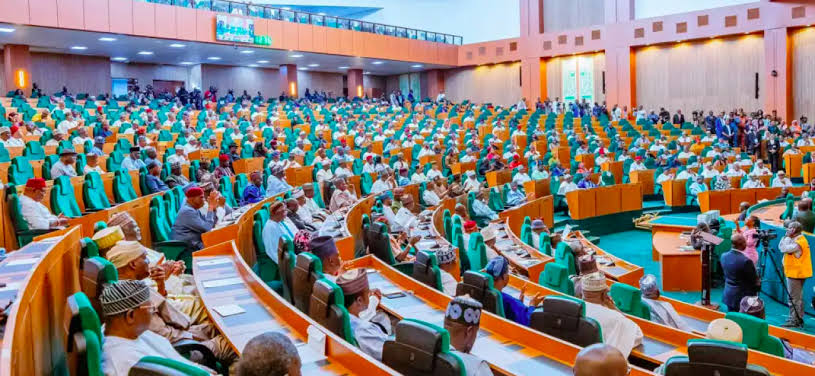In a major move to revive Nigeria’s foremost universities, the House of Representatives has called for an urgent and comprehensive upgrade of Ahmadu Bello University (ABU) Zaria, the University of Ibadan (UI), and the University of Nigeria, Nsukka (UNN). The lawmakers described the state of these institutions as a national concern and emphasized that restoring their lost glory is vital for the progress of Nigeria’s higher education system.
Background: Nigeria’s First-Generation Universities in Decline
Ahmadu Bello University, University of Ibadan, and the University of Nigeria, Nsukka, are among Nigeria’s oldest and most prestigious institutions. Established in the early 1960s, they played a crucial role in shaping the country’s academic, scientific, and political foundations. Over the years, these universities produced some of Nigeria’s most distinguished leaders, scholars, and professionals across various sectors.
However, despite their historical significance, these once-thriving universities have faced decades of neglect. Challenges such as underfunding, decaying infrastructure, poor maintenance, staff migration, and outdated facilities have crippled their global reputation. Once ranked among Africa’s leading institutions, they now struggle with issues ranging from dilapidated hostels and overcrowded classrooms to inadequate research facilities.
The House of Reps Motion: A Call for Strategic Rehabilitation
The motion, titled “Need to Upgrade First-Generation Universities and Investigate the Quality and Standards of TETFund Projects Across Federal Universities in Nigeria,” was moved by Hon. Aderemi Oseni, a lawmaker from Oyo State.
In his presentation, Oseni highlighted the urgent need for the Federal Government to take immediate steps to restore the structural integrity and academic standard of these pioneer institutions. He noted that Nigeria’s higher education system cannot achieve meaningful progress if its oldest and most respected universities remain in a state of disrepair.
The House unanimously adopted the motion and mandated the Ministry of Education, the National Universities Commission (NUC), the Tertiary Education Trust Fund (TETFund), and the Federal Ministry of Finance to collaborate on a strategic rehabilitation and upgrade plan for these universities.
Lawmakers Express Concern Over TETFund Projects
Beyond the call for rehabilitation, the House also expressed concern over the quality and standard of projects funded by the Tertiary Education Trust Fund (TETFund) across federal universities in Nigeria.
Lawmakers argued that despite billions of naira disbursed annually through TETFund, the impact on Nigerian campuses remains minimal. Many projects, they claimed, either suffer from poor execution, abandonment, or substandard delivery, leaving students and staff to face worsening learning conditions.
To address this, the House resolved to investigate all TETFund-funded projects in Nigerian federal universities to ensure transparency, accountability, and value for money. The investigation will focus on project delivery timelines, contract quality, and the effectiveness of TETFund’s oversight mechanisms.
Why the Upgrade Matters
Reviving ABU, UI, and UNN is not merely a matter of prestige—it is a national necessity. These universities serve as key training and research centers that have contributed significantly to Nigeria’s manpower development. Their decline has not only affected local academic standards but also reduced Nigeria’s competitiveness in global education rankings.
- Research and Innovation: These institutions used to lead groundbreaking research across agriculture, medicine, engineering, and social sciences. Upgrading them will reignite Nigeria’s innovation potential.
- Brain Drain Reduction: Modern facilities and better working conditions can help retain talented lecturers and researchers who currently migrate abroad for better opportunities.
- Boost to Global Reputation: Improving infrastructure and academic quality can help Nigeria reclaim its place on global university rankings and attract international collaborations.
- Student Welfare: Better hostels, libraries, laboratories, and classrooms will directly improve learning experiences and overall student performance.
Current Realities in Nigeria’s Oldest Universities
Across the campuses of these institutions, the challenges are glaring.
- University of Ibadan (UI): Once ranked among Africa’s top ten, now faces infrastructural decline, overcrowded lecture halls, and limited hostel accommodation.
- Ahmadu Bello University (ABU): Known for its large student population, ABU’s facilities have aged significantly, with many departments lacking modern equipment and laboratories.
- University of Nigeria, Nsukka (UNN): Reports show that hostels are in dire condition, classrooms need renovation, and research centers require urgent modernization.
Despite efforts by management teams to maintain standards, the scale of decay far exceeds available resources. Without government intervention, these universities risk further deterioration.
Expected Government Action and Oversight
Following the House’s resolution, relevant government agencies are expected to conduct comprehensive assessments of the physical and academic needs of these universities. This will include:
- Evaluating structural and facility conditions.
- Auditing ongoing and past TETFund projects.
- Preparing a phased rehabilitation plan.
- Introducing strict monitoring and accountability systems to prevent project abandonment.
The Federal Government is also expected to provide a dedicated funding framework to ensure that the upgrades are sustainable and transparent. Stakeholders are calling for alumni associations, private sector partners, and international development agencies to complement government efforts.
Voices from the Education Sector
Education experts have lauded the lawmakers’ decision, describing it as timely and necessary. They stressed that Nigeria’s educational recovery depends largely on restoring the foundation laid by its first-generation universities.
Some experts also urged the government to consider upgrading academic staff welfare, improving digital infrastructure, and establishing maintenance policies to prevent future decay.
Student leaders from ABU, UI, and UNN have also expressed optimism that the motion will translate into real action. Many students lamented the current learning conditions and called for quick implementation of the rehabilitation plans.
Broader Implications for Nigeria’s Higher Education
If properly executed, this move could mark a turning point for Nigeria’s university system. A successful upgrade of these three pioneer universities could serve as a blueprint for improving other federal institutions nationwide.
Moreover, enhancing research infrastructure in these universities could significantly boost Nigeria’s innovation output, strengthen industrial partnerships, and attract international collaborations and grants.



